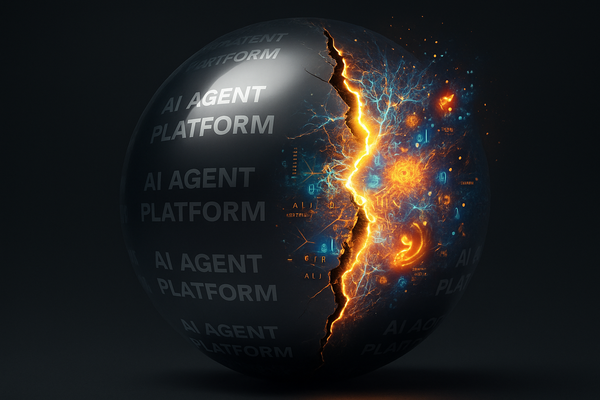The Great AI Divide: Why Most Entrepreneurs Are Betting Against Their Own Future
Building AI startups for today or tomorrow? OpenAI’s Sam Altman warns most founders risk obsolescence by focusing on present tech. Discover how future-proof strategies in tutoring, customer service, and more can help you thrive in AI’s rapid evolution.

OpenAI CEO Sam Altman has identified a critical strategic error that could doom countless AI startups. The mistake? Playing it safe with today's technology instead of betting on tomorrow's breakthroughs.
"The biggest mistake I see founders making is optimizing for what's possible today, rather than building for what will be possible tomorrow." - Sam Altman
The Two Paths: A Tale of Vision versus Caution
"I think there are two fundamental strategies to build an AI startup right now," Altman explains. "You either bet the technology is about as good as it's going to be, or you bet that the technology is going to get massively better." This seemingly simple observation masks a profound insight into the future of artificial intelligence and entrepreneurship.
The Tutoring Paradox
To illustrate this divide, Altman presents a compelling example of an AI tutoring company. Imagine two startups: The first builds a system that can only handle 6th-grade material today but is architected to scale up as AI capabilities improve. The second meticulously optimizes their platform to teach history to 8th graders, focusing on perfecting current capabilities.
"You'll be really happy when GPT-5 comes out... while others will be really sad." - Sam Altman
While the second approach might yield better immediate results, it's potentially building toward obsolescence. "You'll be really happy when GPT-5 comes out," Altman notes about the first approach, while those who bet on optimization "will be really sad."
The Surprising Reality: 95% Are Getting It Wrong
Perhaps the most startling revelation is Altman's observation that while he expected 95% of entrepreneurs to bet on AI's evolution, the opposite is occurring. This has given rise to the "OpenAI killed my startup" phenomenon, where companies find their carefully optimized solutions rendered obsolete by rapid technological advances.
"95% of AI startups are optimizing for today when they should be building for tomorrow."
The Customer Service Revolution: A Case Study in Strategic Thinking
The customer service sector provides a perfect example of this strategic divide. According to recent research, implementing AI chatbots can reduce response times by 30%, but many companies are missing the bigger picture. While some focus on perfecting responses to specific queries, forward-thinking organizations are building flexible systems that can evolve with the technology.
Consider the contrast between two approaches:
- Traditional Approach: Building chatbots that handle specific, predefined scenarios
- Evolution-Ready Approach: Creating adaptive systems that can incorporate new capabilities as they emerge
The Data Speaks: Why Evolution Beats Optimization
The numbers support Altman's perspective. A Capgemini survey reveals that 82% of tech executives plan to integrate AI agents within three years. By 2025, experts predict AI will approach human-level reasoning in many domains. Companies building for today's capabilities might find themselves scrambling to catch up.
The Hidden Costs of Playing It Safe
While focusing on current capabilities might seem prudent, it carries significant risks:
- Technical Debt: Systems built for today's limitations may require complete overhauls as AI advances
- Market Position: Early movers who bet on evolution can establish dominant positions
- Innovation Gap: Companies focused on optimization may miss breakthrough opportunities
Building for Tomorrow: The Strategic Imperative
For entrepreneurs and investors, the message is clear: the future belongs to those who can envision and build for tomorrow's capabilities. This doesn't mean ignoring current functionality, but rather creating architectures that can evolve with the technology.
"If you're not building for exponential improvement, you're building for obsolescence."
The Path Forward
Success in the AI space requires a delicate balance:
- Build flexible systems that can incorporate future advances
- Maintain current functionality while preparing for evolution
- Focus on fundamental problems rather than temporary limitations
Conclusion: The Future Belongs to the Bold
Altman's insights suggest that the most successful AI startups will be those that dare to bet on evolution. In his words, "If you're doing a little thing to get it to barely work in one specific case, that's probably a mistake."
The future of AI is not about perfecting what's possible today—it's about building for the possibilities of tomorrow. For entrepreneurs and investors alike, this might be the most important strategic decision they make in the coming years.




